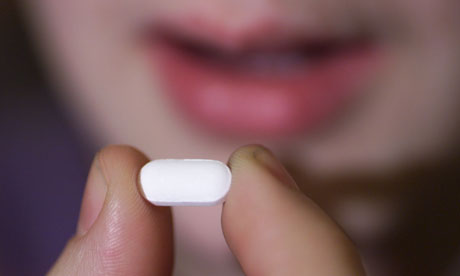
Health reporting has its own lexicon of hyperbole. We get a dizzying number of apparent breakthroughs, advances that will revolutionise patients' lives and, of course, offer the Holy Grail – cures – far beyond the evidence. One national newspaper proclaims a new cancer cure on its front page on many Mondays. Only last week a procedure billed as a "cure" for Type 2 diabetes turned out, sadly, to be nothing of the sort.
And, of course, there are "wonder drugs", a description given to many of the cancer medications that NHS organisations have declined to give to patients because the National Institute of Health and Clinical Excellence has decided the potential benefit gained is less than the huge expense involved.
But aspirin, the humblest of medicines, surely merits that accolade after last week's research reported in The Lancet showing that regular small doses reduce the risk of many cancers, some by up to 54%. (We already knew that aspirin helps prevent heart attacks and strokes.)
Unlike most research findings, these ones could, and arguably should, lead many people – in this case the over-45s – to alter their behaviour. Not for nothing did BBC medical correspondent Fergus Walsh, 49, write in his blog: "From now on I am going to take a daily low-dose aspirin. I intend to continue doing this for the next 25 years."
Peter Elwood, honorary professor of epidemiology at Cardiff University, was part of a team of researchers who in 1974 provided the first real proof of aspirin's efficacy. "It's a miracle drug because it's a simple molecule that is unique in attacking both the world's two major causes of death and disability, cardiovascular disease and cancer." While some drugs – statins, for example – are good at preventing heart attacks and strokes, and some at tackling cancer, only aspirin does both, stresses Elwood.
One other advantage is its cheapness, itself a result of it being out of patent in most countries. Drug giant Bayer, its creator, makes little from it anymore. Aspirin is now a generic drug – anyone can make it. So are there any others like that? Sadly not. "No other out-of-patent drug offers anywhere like the same benefit," says Elwood.
Aspirin is the commonest of wonder drugs, available at corner shops, supermarkets and petrol stations for as little as a penny a tablet. It is usually used for headaches, hangovers, a migraine, angina or rheumatic pain, or to stop the blood clotting and so thwart a heart attack, stroke or blood clot.
But last week's findings did not convince everyone. "I wouldn't call aspirin a wonder drug," says Sultan "Sid" Dajani, a pharmacist and spokesman for the Royal Pharmaceutical Society, the professional body for the UK's 45,000 pharmacists.
"To me, a wonder drug brings maximum benefit and minimal risk. Statins and antibiotics are wonder drugs, because both save lives, and some anti-cancer drugs, such as Tamoxifen, Herceptin and Avastin, because, while toxic, they give you hope and maybe a second chance. And when the genetic medicines in development become available – the 'magic bullet' drugs that can switch off genes that are precursors to things like diabetes, cancer and osteoporosis – if they work, they'll clearly be wonder drugs. But not aspirin."
For him, the risk of aspirin causing a stomach bleed is too great. Another drug, Clopidogrel, is more effective than aspirin and carries less risk, he says, but it's prescription-only and is far less available on the NHS because it costs much more than little white aspirin tablets. Elwood points out that while heart attacks and stroke have a 40% death rate, the worst outcome from excess consumption of aspirin is bleeding that will require a blood transfusion. "Compare the seriousness involved," he pleads.
After last week's breakthrough, some of the UK's most senior doctors will start lobbying for popping a 75-milligram aspirin a day to be included as official cancer prevention lifestyle advice, alongside not smoking, being physically active and eating healthily. Don't be surprised if they succeed.

